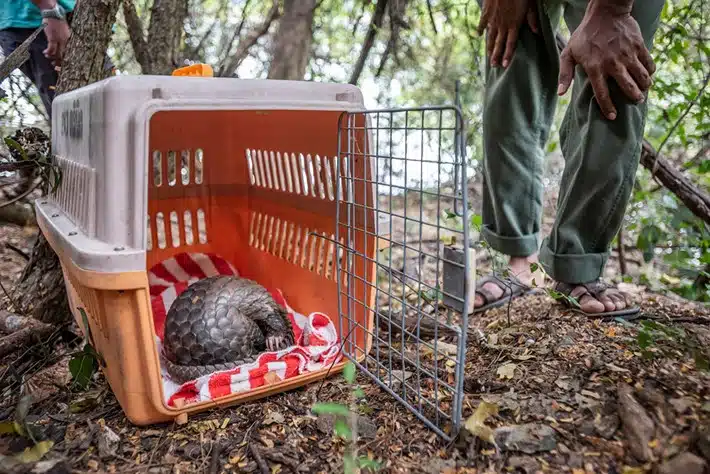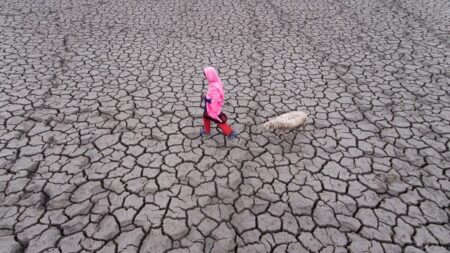Table of Contents
- Pangolin in Peril and its Conservation Threat in India.
- Pangolin in Peril and markets for the Illegal Trade
- Pangolin in Peril and what that means for Global and Local Biodiversity.
- Pangolin in Peril and how CITES and TRAFFIC can help.
Pangolins are in peril the world over and more so in India. 1,023 Pangolins were poached and trafficked out of India between 2018 and 2022, according to CITES (Convention on International Trade in Endangered Species of Wild Flora and Fauna), which is a crime detection wing of WWF.
An Intricate study was done based on the seizures and claws, carcasses, and other parts of the animal.
Between 2015 and 2021 in Asia, India had the highest number of Pangolin seizures, where the number of cases reached 287. This was revealed when the Directorate of Revenue Intelligence seized 336.9 kg of Pangolin scales between 2010-2022, with a 1 kg scale of Pangolin seizures plucked from the Adult Pangolin.
Despite the estimates being too conservative, considering its bodily traded parts could only be revealed. The State of Odisha had the maximum number of seizures, where a number of 24 pangolins were seized from the traffickers.
Most illegally trafficked Pangolins were transported to the East Asian and Southeast Asian Markets, according to Merwyn Fernandes, Program Coordinator, TRAFFIC.
Pangolin in Peril and its Conservation Threat in India

Pangolins are nocturnal animals easily recognizable by their full Armour of scales and weigh around 4.4 -7ilbs and thrive in forest and Grassland Habitats. They are eight species of Pangolins. Out of these, four of the Pangolins live in Africa, which is the Black belled Pangolin (Phataginus tetradactyla), White-bellied pangolin (Phataginus tricuspis), Giant Ground pangolin (Smutsia gigantea) and Timmins’s Ground pangolin (Smutsia temminckii).

More than 1,000,000 Pangolins are trafficked every year over 10 years, with alarming data revealing that it happens every 3 minutes.

Pangolins in India



If we get into more Geographic detail, they are located in all four provinces of Pakistan, from Attock district in the north towards (Khyber Pakthunwala Province) towards Ladu and Larkhana deserts (Sindh Province) and also found Predominantly in Punjab Province. Attock district in the north towards (Khyber Pakthunwala Province) towards Ladu and Larkhana deserts (Sindh Province).
Many species records have been detected in Nagaon Districts in Assam towards Kanyakumari and Kerala, with unofficial records found in Jharkhand, Delhi, Rajasthan, Chhattisgarh and Gujrat. They are also instances where these Pangolins were noticed in the lowlands of Sri Lanka and Nepal.
Pangolin in Peril and markets for the Illegal Trade
As we are approaching World Pangolin Day on 20th February, we to cite the fact that close to 1 million Pangolins have been trafficked; an estimated 195,000 pangolins were trafficked in 2019 for the scales alone,
Historically Pangolins were traded primarily for bushmeat, with scales being by-products; however, as time strolled, other by-products for commercial leather towards realizing its medicinal purposes.


With Pangolins being the most trafficked animal accounting for 20 % of all the illegal wildlife trade, sold through black markets, they are priced at $150 per pound of Pangolin meat in Vietnam and a lucrative cost of $3000/kg for Pangolin Scales for Chinese black market.

Pangolin in Peril and what that means for Global and Local Biodiversity.
Pangolins have a strong sense of smell and can find termites and ant nests. They can also have well-designed claws to rip into nests with a long saliva tongue that can stick to their prey and extract them easily.
Pangolins serve the earth as a natural pest controller and keep an immense check over the population of insects, more so their populations limit ants and termite populations to keep the soil healthy, fertile and nutrient-rich.

Pangolin in Peril and how CITES and TRAFFIC can help
Conservation of Pangolins is becoming imperative; CITES (the shorter name for the Convention on International Trade in Endangered Species of Wild Fauna and Flora, also known as the Washington Convention, protects the endangered species of Pangolins.
The convention has about 183 signatory countries, and trafficking laws are placed to investigate it.
WWF and partners TRAFFIC and IFAW launched the Coalition to End Wildlife Trafficking Online .
To Counter Global Efforts, WWF has crowdsourced a financial program called Adopting a Pangolin Program; more information can be found https://gifts.worldwildlife.org/gift-center/gifts/Species-Adoptions/Pangolin
With Proceeds, the money goes to the conservation program of WWF.














